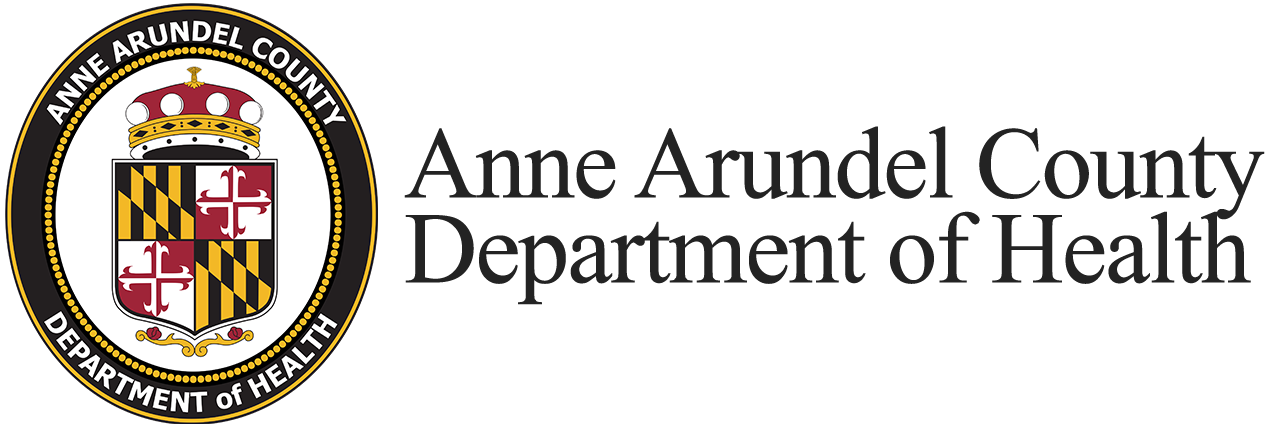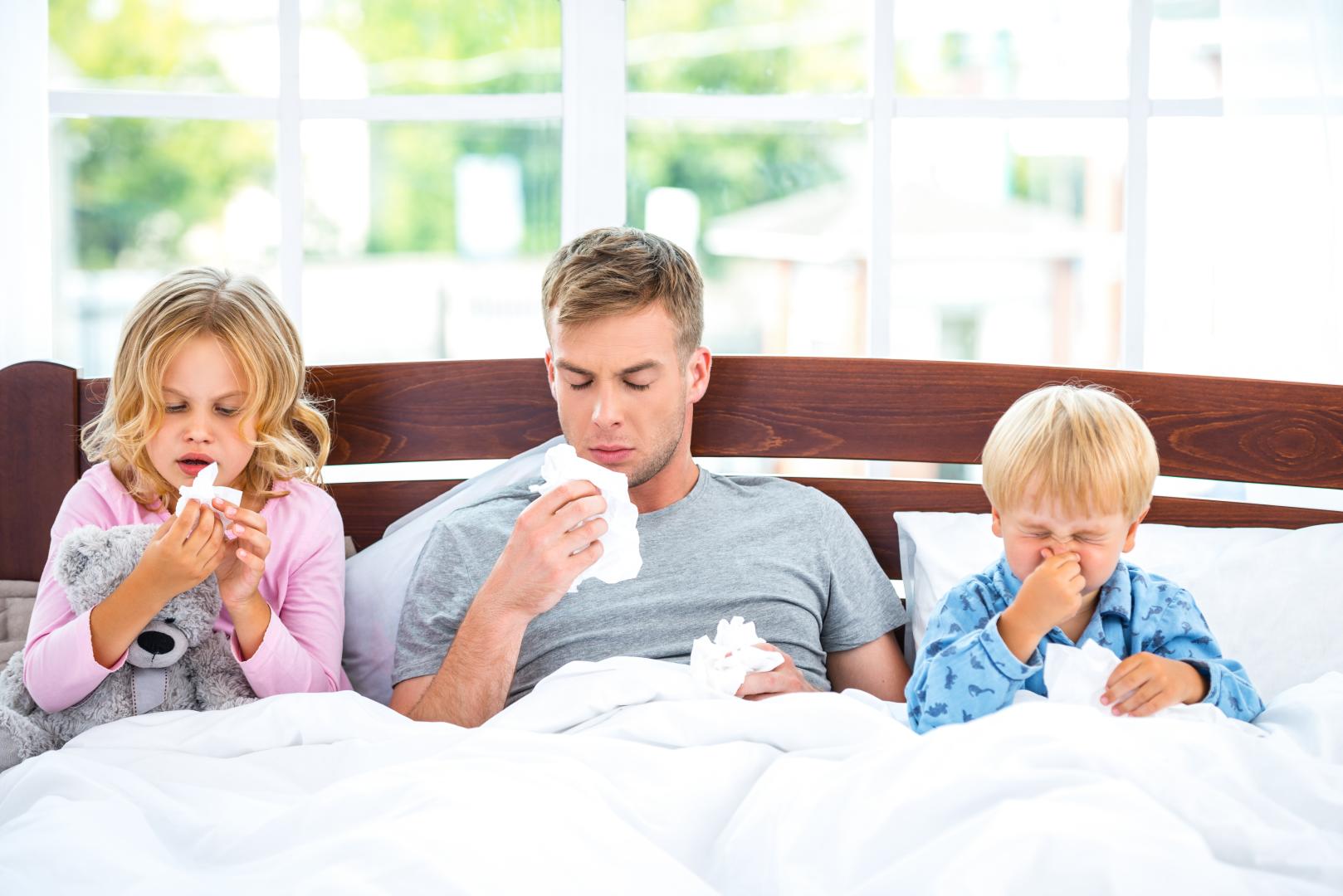Flu Vaccinations
The 2025-2026 flu vaccine is now available. Walk-ins only. Please call your nearest health center to confirm vaccine supply.
*Seasonal flu shots are also available at our Lula Scott Health Center every 1st and 3rd Wednesday of the month.
Flu Vaccination is the Most Effective Way to Prevent the Flu
A flu vaccine is needed each year, because flu viruses change. Studies have shown that the body’s immunity to flu viruses (acquired either through natural infection or vaccination) declines over time. In the 2024-2025 season, the Centers for Disease Control and Prevention (CDC) estimates that the flu caused between 47-82 million illnesses, 610,000 to 1.3 million hospitalizations, and 27,000 to 130,000 deaths in the United States.
The Anne Arundel County Department of Health strongly recommends getting the seasonal flu vaccine. The vaccine is available each year from local health care providers and pharmacists.
Community health centers in Glen Burnie (410-222-6633), Parole (410-222-7247) and Pasadena (410-222-2752) have free seasonal flu shots for Anne Arundel County residents age 6 months and older. High-dose for ages 65+ while supplies last. Call to make an appointment. Wear loose fitting clothing so the arm is easily accessible.
Flu vaccination is especially important for adults 65 years and older, who account for most hospitalizations and deaths from the flu.
COVID-19 continues to circulate so it is very important to obtain a flu vaccine! Here are a few reasons why.
- It is possible to have the flu at the same time as COVID-19 and other respiratory illnesses. Respiratory illnesses target the lungs. Battling more than one respiratory illness at a time could have severe consequences.
- The flu can weaken the body to the point that it is more susceptible to COVID-19.
- Trips to the doctor or pharmacist because of the flu increase the chance of being around people with COVID-19, the flu and other respiratory illnesses and contracting diseases.
- Flu hospitalizations along with COVID-19 hospitalizations could greatly overburden health care facilities.
Flu Frequently Asked Questions
What is Influenza or “Flu”?
Influenza or “flu” is a viral infection of the nose, throat and lungs that can make anyone sick. It is not life-threatening in healthy individuals; however, older people, young children, pregnant women and those with chronic health problems are more likely to become seriously ill or be hospitalized.
Symptoms include fever, chills, fatigue, runny nose, cough, muscle aches and headaches.
Persons should consult with their medical provider before getting the seasonal flu shot if they:
- have ever had a severe reaction to a previous dose of flu vaccine,
- have a history of Guillain-Barré Syndrome, or
- are moderately or severely ill at the time the shot is scheduled.
Prevention and Control
The flu virus is contained in secretions from the nose and respiratory system of a person who has the flu. Viruses get in the air when the person sneezes or coughs. Covering a cough or sneeze with a tissue, mask or even a sleeve reduces the airborne virus. Flu viruses can also get on surfaces. When a person touches a surface contaminated with the flu virus and then touches their nose, mouth or mucus membranes, they can contract the flu.
General Prevention
- Avoid close contact with sick people.
- Get a flu shot every year if it is available to you.
- Keep your environment clean and comfortable.
- Wash your hands often.
- Carry tissues and hand sanitizers.
- Avoid crowds and poorly ventilated public places.
- Spend time outdoors when you can.
- Eat a healthy diet and exercise regularly.
- Don’t smoke.
What is proper hand washing?
Hand washing is one of the easiest and best ways to prevent infection and to avoid getting or passing on the flu virus. Use alcohol-based hand sanitizers if washing facilities are not handy. Teach children how to wash their hands properly.
The Centers for Disease Control and Prevention (CDC) and the American Society for Microbiology (ASM) offer these instructions for proper hand washing:
- Wet your hands with warm, running water and apply liquid or clean bar soap. Lather well.
- Rub your hands vigorously together for at least 20 seconds.
- Scrub all surfaces, including the backs of your hands, wrists, between your fingers and under your fingernails.
- Rinse well.
- Leave the water running when you are finished rinsing. Then dry your hands with a clean or disposable towel. Use the towel to turn off the faucet and to turn the door knob.
When is the best time to get the vaccine?
Flu season can begin as early as October and last as late as May. The Centers for Disease Control and Prevention (CDC) recommend that people get their seasonal flu vaccine as soon as vaccine becomes available in their community. Vaccination before December is best since this timing ensures that protective antibodies are in place before flu activity is typically at its highest.
People should get vaccinated every year. Even if the current flu vaccine protects against the same flu viruses as the previous year’s vaccine, immunity to flu viruses declines over time and may be too low to provide protection after a year.
Are you sick or caring for someone sick with the flu? Follow these and your medical provider's advice:
- Assist the patient in getting medical advice and help.
- Avoid crowds or poorly ventilated public places. Stay away from others as much as possible, especially those at high risk.
- Avoid touching your own mouth, nose and eyes.
- Avoid using heating pads or hot water bottles. People can get burned.
- Call rather than visit your doctor for advice.
- Children with the flu should avoid aspirin. Follow the doctor’s advice on remedies.
- Don’t share utensils, water bottles, toothbrushes or other personal items.
- Drink lots of fluids. Hot drinks can be very soothing. Limit alcohol and caffeine. Chicken or other light soups may help. Don’t “starve a fever.”
- If you need to go to a health care facility, ask for a mask. Consider wearing a surgical mask while in the same room.
- Keep frequently touched surfaces sanitized.
- Keep the sick room and the patient clean and comfortable.
- Keep your home at a comfortable temperature and humidity. Humidifiers have pros and cons, so check with your medical provider.
- Rest and get lots of sleep.
- Stay home if sick. A child should not be sent to day care or school while sick. Don’t go to work or visit hospitals or nursing homes.
- Supply tissues and sanitizers and the other things they need.
- Unless your medical provider says no, use acetaminophen for aches and fever, and use decongestants and cough remedies for respiratory symptoms.
- Use tissues to control secretions and dispose of them after each use.
- Wash your hands often, and cover your mouth and nose when coughing or sneezing.
- Watch for high fever, dehydration, changes in consciousness, shortness of breath, chest pain, severe vomiting or any other serious symptoms.
- Weather permitting, open windows and drapes occasionally in the daytime.

